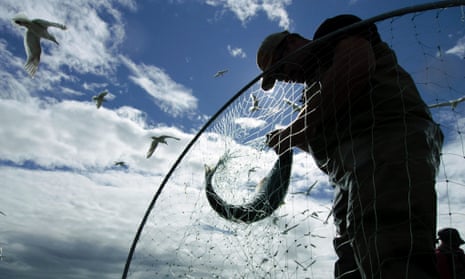For the most part, corporate sustainability programs drive change from the top down. If Apple wants to improve safety at the factories where its products are made, or Walmart wants to reduce fertilizer runoff in agriculture, or McDonald’s pledges to buy beef raised in environmentally friendly ways, those companies set targets and goals and deploy a mix of carrots and sticks to bring their suppliers along. Those suppliers push further down the chain and, if all goes well, workers, farmers and maybe the planet are all a little better off.
Whatever one thinks of this theory of change, it does little for the billions of people who are untouched by global supply chains. Rare, a conservation nonprofit, aims to serve those people and the places where they live, sometimes by helping them to build sustainable enterprises from the bottom up. While big green groups like the Nature Conservancy and WWF build partnerships with the likes of Dow Chemical and Coca-Cola, Rare works at the grassroots level.
“Our work tends to begin where those developed-world, mainstream supply chains end,” says Brett Jenks, Rare’s chief executive.
Its ties to global business come mostly through its major donors – they include former Goldman Sachs CEO Hank Paulson and his wife, Wendy, the former chair of Rare’s board; the foundation of former New York mayor and media tycoon Michael Bloomberg; and investor and environmentalist Jeremy Grantham, a current board member. The Waitt Foundation, which is led by philanthropist and former Gateway CEO Ted Waitt, is funding Rare’s newest initiative – a project called Fish Forever.
Fish Forever is a partnership with the Environmental Defense Fund and the sustainable fisheries group at the University of California at Santa Barbara (UCSB). It’s a good example of how sustainable business practices can be developed in places that are beyond the reach of corporate initiatives.
Fish Forever is launching this year in five countries – Belize, Brazil, Indonesia, Mozambique and the Philippines. It targets fishers with a single boat or two, as well as those who fish from shore. In developing countries, these mostly poor, small-scale fishers account for half of all fish caught, the vast majority of which is consumed domestically. They’re never going to qualify for the Marine Stewardship Council eco-label on display at Whole Foods Market.
Yet most of these near-shore, local fisheries are unmanaged, overexploited or even collapsed.
“The tragedy of the commons is on full display,” Jenks says. “Every fisherman is out there trying to catch the last fish.” John Mimikakis, who oversees oceans programs at Environmental Defense says: “That’s an environmental crisis and a humanitarian one because so many people depend on these small-scale fisheries for their nutrition and their livelihood.”
Each Fish Forever partner brings expertise to the partnership. Environmental Defense has been a pioneer in rebuilding fisheries through what is often called rights-based management. Rare specializes in mobilizing communities in poor countries on behalf of conservation. And the scientists at UCSB are experts in monitoring and measuring the health of fisheries.
Here’s how the program works: with the backing of state or national governments, local fishers get exclusive fishing rights to a community fishing areas – a bay or stretch of coast. The community then has good reason to adopt conservation practices because it will reap the benefits if they work.
Typically, those practices include the establishment of a marine preserve, also known as no-take zone, located inside the community fishing area, or nearby. These no-take zones give fish in the area the opportunity to recover and regenerate themselves. Local fishers enforce the no-take zones themselves.
All of this is intended to create incentives to protect the long-term value of the area. “The goal is to come up with a system that aligns human needs with environmental needs,” Mimikakis told me. “We’ve seen time and time again that when you get the incentives right – when fishermen actually believe they will be able to catch fish tomorrow – they really do become strong stewards of the resource.”
Rare brings its marketing skills to the effort. Since its beginnings in the 1970s, Rare has launched more than 250 of its signature Pride campaigns in 50 countries. It uses billboards, radio commercials, mascots and puppet shows to inspire pride in nature – an animal, a plant, or a landscape – and to drive behavior to protect these natural assets. In the case of Fish Forever, Pride campaigns will tout either an endangered fish or the idea of managing access to fisheries.
Fish Forever will only succeed if local communities take ownership of the effort, and spread the word to others. It’s the reverse of the “tendency in conservation to take a town-down, deterministic approach,” says Pablo Granados, who oversees Rare’s work in Belize.
Can Fish Forever scale? It’s too soon to say. “We try to design programs that can be replicated,” says Jenks. The partners hope that the program will spread virally, as communities seek out the benefits they see their neighbors reaping.
The supply chain hub is funded by Fairtrade Foundation. All content is editorially independent except for pieces labelled advertisement feature. Find out more here.

Comments (…)
Sign in or create your Guardian account to join the discussion